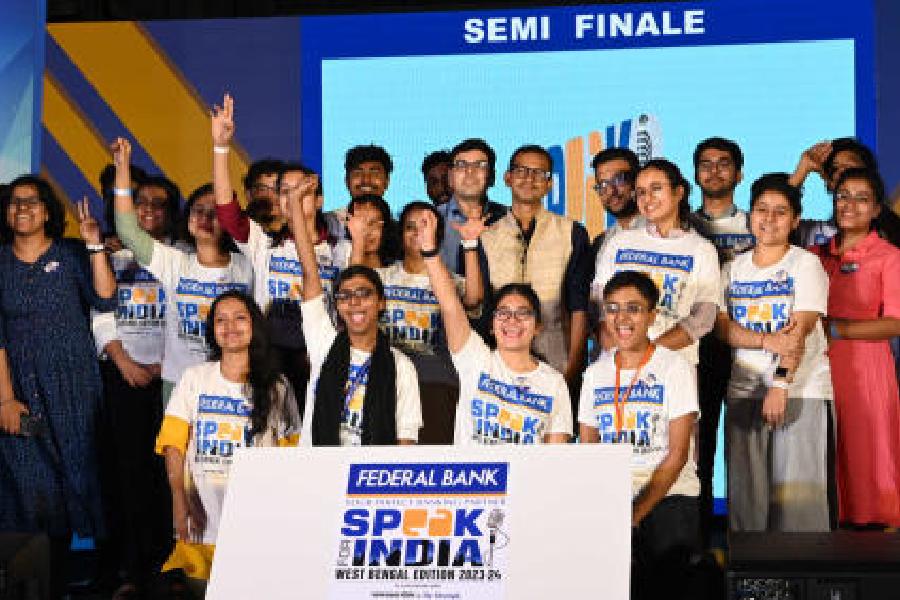A woman from Jalpaiguri said her parents were indebted to social media because it enabled them to reconnect with long-lost friends.
A man from Jhargram countered her by highlighting the perils of social media, like cyber-bullying and deepfake videos.
Both the college students were participants in the Federal Bank Hormis Memorial Foundation presents Speak for India — West Bengal Edition — in association with Anandabazar Patrika and The Telegraph.
The debate campaign was launched on December 22 last year.
Multiple district and zonal rounds, which saw the participation of over 2,000 students, led to the semi-final at an auditorium in Asutosh College in Kolkata. Many of the students came from the districts.
The semis involved multiple rounds, each making the group of shortlisted candidates thinner.
Eventually, eight debaters made it to the finals, to be held at Presidency University on Saturday.
One of the topics on Thursday was the “impact of social media on youth”.
Sambhabana Mukhoty, from PD Women’s College in Jalpaiguri, hailed social media for “giving us a huge space for communication”.
“Even our parents who lost touch with their old friends can connect through social media. The youth have found a source of income from social media. It gives space to both a consumer and supplier,” she said.
Pradyumna Panda, from the Government General Degree College in Lalgarh, Jhargram, reminded the packed auditorium of the threats of deepfake videos and other forms of cyber-bullying.
“There is cyber-bullying and many deepfake videos. Propaganda is being run by social media. It is becoming the cause of various diseases like insomnia and obesity for the youth,” he said.
“The topics were very relevant and stimulating. It was very difficult for us to judge the participants. Each one of them brought different points,” said Bratati Bhattacharya, group director of JIS School of Management Studies and one of the judges on the panel.
The Speak for India campaign started in 2014 in Kerala and has since spread across different parts of the country.
“A programme that started as a basic CSR campaign now has been transformed to an iconic event focusing on youth environment and nation building,” said Tanushree Basu, assistant vice-president, Federal Bank.
